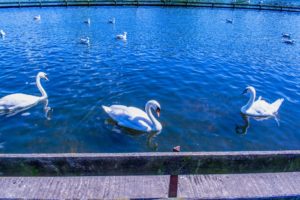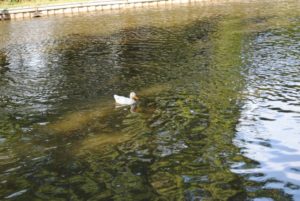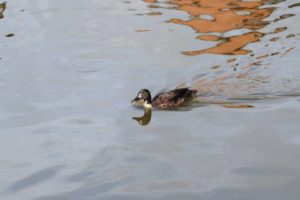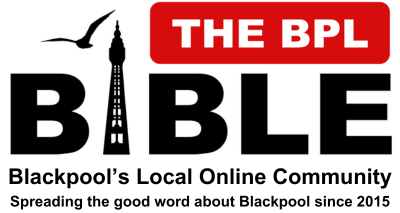 Many people were introduced to wild birds as children by feeding ducks bread by a duck pond. Even I have my favourite memories of my parents taking me to the boating lake in Fleetwood many a time to feed the swans leftover bread every week. Although we have always thought that feeding wild birds bread was an enevironmentally friendly and resourceful way to ensure our old bread is put to good use, in actual fact, it has emerged in recent years that feeding wild birds bread is actually pretty harmful to them.
Many people were introduced to wild birds as children by feeding ducks bread by a duck pond. Even I have my favourite memories of my parents taking me to the boating lake in Fleetwood many a time to feed the swans leftover bread every week. Although we have always thought that feeding wild birds bread was an enevironmentally friendly and resourceful way to ensure our old bread is put to good use, in actual fact, it has emerged in recent years that feeding wild birds bread is actually pretty harmful to them.
With spring bringing better weather and more oportunities for families to feed the local birds, we thought we’d bring you some useful information about feeding the ducks including why bread is bad and what you can feed them instead.
Why Shouldn’t We Feed Bread?
 Bread and bread products such as crackers, popcorn, chips crisps and donuts are all full of carbohydrates. Sure the birds will eat them all because they find them tasty and it’s not going to be harmful to them as an occasional treat, but in the long term, bread and similar products have no nutritional value to birds. It’s the same as us having a diet of junk food. One family feeding these products to birds in one location once a month would be fine and have no adverse affect, but when may families, sometimes several times a day, are feeding bread to birds, this begins to have a major affect on their health.
Bread and bread products such as crackers, popcorn, chips crisps and donuts are all full of carbohydrates. Sure the birds will eat them all because they find them tasty and it’s not going to be harmful to them as an occasional treat, but in the long term, bread and similar products have no nutritional value to birds. It’s the same as us having a diet of junk food. One family feeding these products to birds in one location once a month would be fine and have no adverse affect, but when may families, sometimes several times a day, are feeding bread to birds, this begins to have a major affect on their health.
Fat birds may sometimes look cute, but in reality, you must remember that these are wild animals. Their body weight has a major impact on their ability to fly and if they can’t fly, they can’t get away from predators and can’t fly to a warmer location when night falls for exmaple.
Ducklings are especially at risk of health problems if they are fed a diet that is loaded with carbohydrates. Growing ducklings need plenty of insect protein and natural plants to help them grow fast. If they are fille dup with carbs, they won’t be hungry enough to eat the things they should be eating, leading to inadequate nutrition for growth. In additon, the duckling stage is important for ducks to learn to forage and make good dietary choices. If they are fed on a carb based diet, they are not going to bother learning to forage and will then be dependant upon a poor diet.
Overcrowding of areas can occur when birds are given a carbohydrate based diet. The birds do not forage for nutritious food and when there is some nutritious food available, they can become territorial to compete for food. Diseases can spread quickly through larger flocks of birds and areas of high bird populations can attract predatory birds.
Moldy bread is one of the most dangerous things for bird flocks, as it can cause aspergillosis. This is a fatal lung infection that can cause the deaths of entire flocks of waterfowl including ducks.
Rotting bread can attract pests such as rats, mice and insects, all of which can harbour diseases and spread illnesses to birds.
 Alternatives To Bread
Alternatives To Bread
It’s pretty obvious that feeding these carbohydrate-laden food products to birds has to stop, but that doesn’t mean that you shouldn’t bring the family to enjoy an efternoon of feeding the ducks and enjoying local wildlife. There are plenty of alternative foods that you can bring for birds that is safe and very nutritious for them.
Next time you’re heading to the park, pind or lake to feed the ducks, remember to bring:
- Grapes (cut these in half as birds can choke on them the same as small children can)
- Oats, any bird seed and other grain
- Defrosted frozen peas
- Duck feed pellets
- Rice – either uncooked and cooked is fine!
Don’t Waste Stale Bread
Just because you’re not feeding it to the ducks doesn’t mean that your stale bread should go in the bin. There are plenty of ways that you can use up stale bread even if it’s not fresh enough for sandwiches anymore!
- Add bread to a composter to create a fertilizer for your garden
- Use recipes for stale bread such as bread pudding
- Toast stale bread for homemade breadcrumbs or croutons







